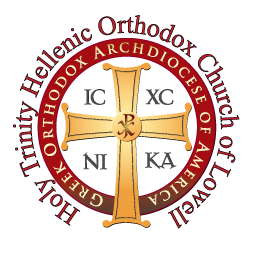FUNERALS
Funeral services are permitted on any day of the year, except for Sundays and Holy Friday, unless permission is granted by the Archbishop or Metropolitan. Our priest is available for all members (and non-members in time of need) to assist in helping you through rough times
Information on certain topics that relate to Funerals and Deaths.
(published January 27, 2012 by the Metropolis of Boston)
1. Cremation: Because the Orthodox Faith affirms the fundamental
goodness of creation, it understands the body to be an integral part
of the human person and the temple of the Holy Spirit, and expects
the resurrection of the dead. The Church considers cremation to be
the deliberate desecration and destruction of what God has made
and ordained for us. The Church instead insists that the body be
buried so that the natural physical process of decomposition may
take place. The Church does not grant funerals, either in the
sanctuary, or at the funeral home, or at any other place, to persons
who have chosen to be cremated. Additionally, memorial services
with kolyva (boiled wheat) are not allowed in such instances,
inasmuch as the similarity between the “kernel of wheat” and the
“body” has been intentionally destroyed.
2. Suicide: Suicide, the taking of one’s own life, is self–murder and
as such, a sin. More importantly, it may be evidence of a lack of
faith in our loving, forgiving, sustaining God. If a person has
committed suicide as a result of a belief that such an action is
rationally or ethically defensible, the Orthodox Church denies that
person a Church funeral, because such beliefs and actions separate
a person from the community of faith. The Church shows
compassion, however, on those who have taken their own life as a
result of mental illness or severe emotional stress, when a
condition of impaired rationality can be verified by a physician.
3. Autopsy: When a person dies for reasons that are uncertain, a
qualified medical examiner may, with the permission of the next of
kin, perform an autopsy to determine the cause of death. In some
states, this is required by law. In all cases, however, the Orthodox
Church expects that the body of the deceased be treated with
respect and dignity.
4. Funerals: Concerning the funeral service itself, our Parish
Priests are often approached to include hymns from other
traditions, both Christian and non–Christian. Some families have
even requested that secular songs be permitted during the funeral
service. This practice is foreign to the ethos and tradition of the
Orthodox Church. Therefore, non–Orthodox hymns are not
permitted prior, during or following the funeral service held in
Parishes of the Metropolis of Boston.
At the end of the funeral service, the priest will offer the eulogy.
Laymen are not permitted to speak. Those wishing to offer
reflections are welcome to do so at the funeral home, the gravesite
or at the memorial meal following services.
Priests and Parishes in the Metropolis of Boston are required to
abide by these guidelines.
MEMORIALS
Memorial services may not be chanted from the Saturday of Lazarus through the Sunday of Thomas, on any Feastday of the Lord or any Feastday of the Theotokos.
Faith
Information
Facebook: https://www.facebook.com/holytrinity.lowell
Instagram: https://www.instagram.com/holytrinitylowell/
Twitter: https://twitter.com/HolyLowell
Youtube page for all Church Services: https://www.youtube.com/channel/UC1ukMQyQlULGbNIXSEGfVKA/videos?view=57&pbjreload=102
